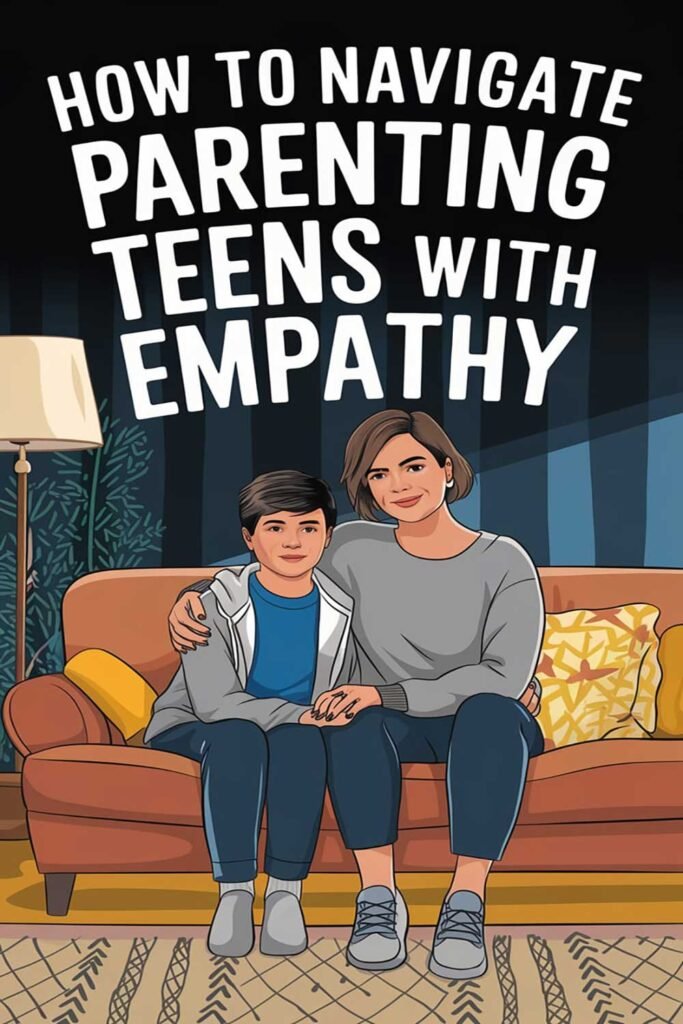How to Improve Communication Within Your Family
Effective communication is the foundation of strong family relationships. When family members openly express their thoughts and feelings, misunderstandings decrease, conflicts become easier to resolve, and emotional bonds grow stronger. If you’re looking to enhance communication within your family, these strategies will help create a more open, understanding, and supportive environment.

The Importance of Family Communication
Good communication is crucial for maintaining healthy relationships, resolving conflicts, and ensuring that every family member feels heard and valued. Poor communication can lead to misunderstandings, emotional distance, and unresolved conflicts. Strengthening communication skills can foster a sense of belonging and emotional security within the family unit.
Practical Strategies to Improve Communication
1. Practice Active Listening
Listening is just as important as speaking. Active listening means fully concentrating on what the other person is saying rather than simply waiting for your turn to speak.
- Maintain eye contact
- Avoid interrupting
- Use verbal affirmations like “I see” or “That makes sense”
- Summarize what the speaker said to ensure understanding
2. Encourage Open and Honest Conversations
Create an environment where every family member feels safe expressing their thoughts and emotions. Let them know their feelings are valid and that honesty is appreciated.
- Set aside regular family meetings to discuss concerns
- Encourage expressing emotions without fear of judgment
- Use “I” statements (e.g., “I feel hurt when…” rather than “You always…”)
3. Be Mindful of Nonverbal Communication
Body language, facial expressions, and tone of voice all play a role in how messages are received. Be aware of:
- Eye contact and facial expressions
- Tone and volume of voice
- Physical gestures that indicate openness or defensiveness
4. Spend Quality Time Together
Building strong relationships through shared experiences can improve communication naturally. Make time for activities such as:
- Family meals without distractions
- Game nights or movie nights
- Outdoor activities like hiking or sports
5. Resolve Conflicts Calmly and Respectfully
Disagreements are inevitable, but how they are handled makes all the difference. Teach and practice healthy conflict resolution techniques:
- Take a pause before reacting emotionally
- Listen to each person’s perspective without blame
- Seek compromises or solutions that benefit everyone
6. Lead by Example
Children and other family members learn communication habits from one another. Model the behaviors you want to see in your family by:
- Expressing your feelings calmly and respectfully
- Apologizing when necessary
- Showing empathy and understanding
7. Set Boundaries and Respect Personal Space
Healthy communication also involves recognizing when someone needs space. Allowing personal time can prevent conflicts and help family members process their emotions before discussing issues.
8. Use Technology Wisely
Technology can either enhance or hinder communication. Use it to your advantage by:
- Sending supportive texts or messages when apart
- Avoiding excessive screen time during family interactions
- Scheduling tech-free zones, such as during meals
9. Encourage Emotional Expression in Children
For families with young children, teaching emotional intelligence early helps foster open communication. Encourage children to express their emotions in healthy ways through:
- Storytelling and role-playing
- Labeling feelings (“It sounds like you’re feeling frustrated”)
- Teaching them coping strategies for difficult emotions
10. Seek Professional Support When Needed
If communication challenges persist despite efforts, family therapy or counseling can provide tools and strategies to improve interactions. Seeking professional help is a sign of strength, not failure.
Inspirational Quotes on Family Communication
“The most important thing in communication is hearing what isn’t said.” – Peter Drucker
“Family is not an important thing, it’s everything.” – Michael J. Fox
“Good communication is the bridge between confusion and clarity.” – Nat Turner
“When you talk, you are only repeating what you already know. But if you listen, you may learn something new.” – Dalai Lama
“Communication works for those who work at it.” – John Powell
“A happy family is but an earlier heaven.” – George Bernard Shaw
“Love and communication should be the foundation of every family.” – Unknown
“To effectively communicate, we must realize that we are all different in the way we perceive the world.” – Tony Robbins
“What we say matters, but how we say it matters even more.” – Unknown
“Listening is an art that requires attention over talent, spirit over ego, and others over self.” – Dean Jackson
Picture This…
Imagine sitting around the dinner table with your family, laughing and sharing stories about your day. No one is glued to their phone, and everyone feels comfortable expressing their thoughts without fear of judgment. When disagreements arise, they are handled with understanding and respect. Over time, your family grows stronger, more connected, and more supportive of each other. This is the power of effective communication—it creates a home filled with love, trust, and togetherness.
Please Share This Article
If you found this article helpful, please share it with your family and friends who might benefit from improving communication in their own homes.






